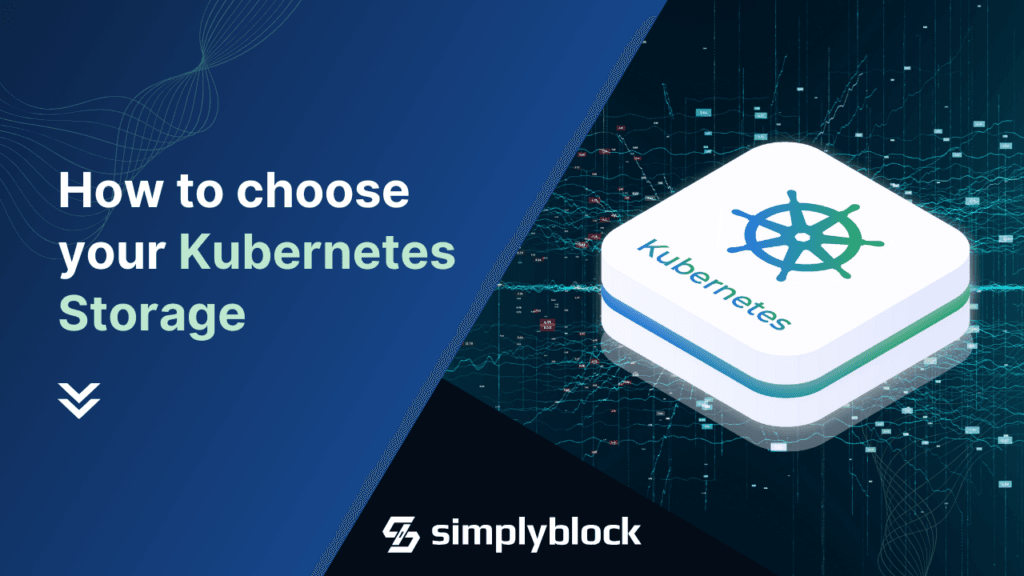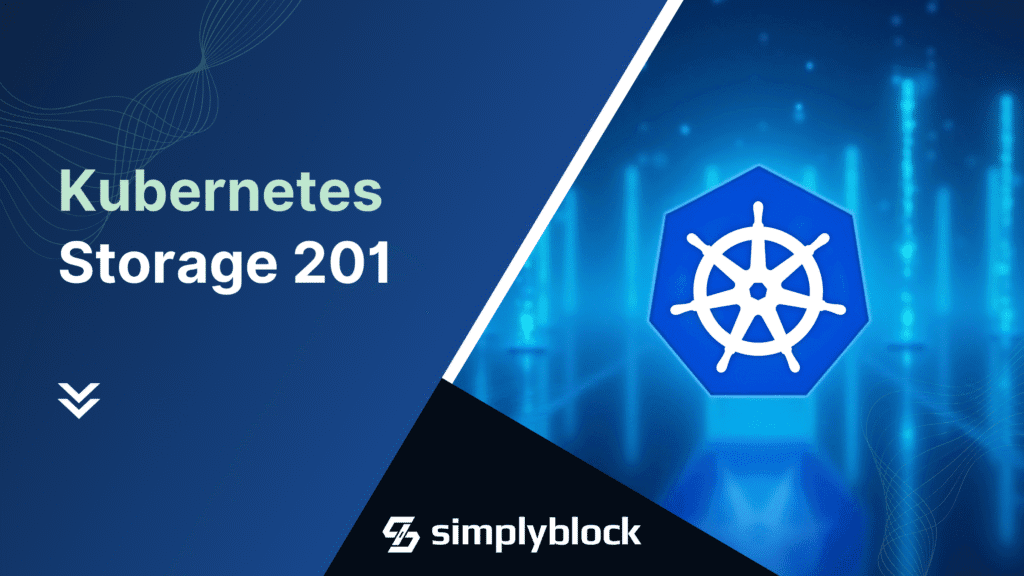
Longhorn, developed by Rancher Labs and now a CNCF incubating project, offers a lightweight, cloud-native distributed block storage system tailored for Kubernetes environments. It provides features like incremental snapshots, backups, and cross-cluster disaster recovery, making it a go-to choice for many Kubernetes users seeking simplicity and reliability. However, as storage demands evolve, several alternatives have emerged, offering enhanced performance, scalability, and advanced features.
Why Simplyblock Stands Out as a Longhorn Competitor
Simplyblock stands out as a high-performance, NVMe-first storage platform designed explicitly for Kubernetes workloads. It delivers ultra-low latency, high IOPS, and seamless scalability, addressing the limitations often encountered with Longhorn in large-scale deployments.
Benefits of Simplyblock:
- Superior Performance: Leverages NVMe over Fabrics (NVMe-oF) to achieve sub-millisecond latency and high throughput.
- Scalability: Supports linear scale-out, ensuring consistent performance as your storage needs grow.
- Advanced Features: Offers distributed erasure coding, application-transparent storage tiering, and DPU optimization.
- Flexibility: Compatible with both ARM64 and x64 architectures, providing versatility across environments.
Why choose Simplyblock over Longhorn:
- Enhanced Performance: Achieves higher IOPS and lower latency, crucial for demanding applications.
- Advanced Data Protection: Utilizes distributed erasure coding for efficient and reliable data storage.
- Comprehensive Protocol Support: Full end-to-end NVMe-oF support ensures optimal performance across the stack.
- Future-Ready Architecture: Designed with modular, adaptive, unified, shared-everything (MAUS) principles for modern workloads.
Notable Longhorn Competitors in the Storage Ecosystem
When comparing storage platforms, it’s important to understand how each solution approaches performance, scalability, and reliability. Below are some of the leading providers in the space, each with its own strengths and focus areas. This comparison highlights how simplyblock stacks up against them.
Ceph
Ceph is an open-source software-defined storage platform that provides object, block, and file storage in a unified system. Known for its scalability and fault tolerance, Ceph is suitable for large-scale deployments requiring robust data protection and flexibility.
OpenZFS
OpenZFS is an advanced file system and volume manager that provides high data integrity, compression, and snapshot capabilities. It’s ideal for organizations needing reliable and efficient storage solutions with robust data protection features.
Blockbridge
Blockbridge delivers high-performance block storage solutions with a focus on automation and efficiency. It caters to enterprises requiring predictable performance and streamlined storage management in virtualized environments.
Direct Comparison of Longhorn Competitors
| Feature | Simplyblock | Longhorn | Ceph | OpenZFS | Blockbridge |
|---|---|---|---|---|---|
| Linear Scale-Out Performance | ✅ | ❌ | ✅ | ❌ | ✅ |
| Advanced (Distributed) Erasure Coding | ✅ | ❌ | ❌ | ❌ | ❌ |
| High IOPS Density | ✅ | ❌ | ❌ | ❌ | ❌ |
| Supports ARM64 and x64 | ✅ | ✅ | ✅ | ✅ | ❌ |
| DPU Optimized | ✅ | ❌ | ❌ | ❌ | ❌ |
| End-to-End NVMe-oF Support | ✅ | ❌ | ❌ | ❌ | ❌ |
| Application-Transparent Storage Tiering | ✅ | ❌ | ❌ | ✅ | ❌ |
Modern Storage Demands a Modern Solution
While Longhorn provides a solid foundation for Kubernetes storage, enterprises with demanding performance and scalability requirements may find it lacking. Alternatives like simplyblock offer advanced features, superior performance, and greater flexibility, making them suitable for modern, data-intensive applications.
Questions and Answers
When selecting a competitor to Longhorn, key factors include performance needs, scalability, and management complexity. If low latency and high throughput are crucial, simplyblock, with its NVMe-oF optimization, might be the best choice. However, for smaller, less complex environments, Longhorn remains a strong contender. Evaluating your Kubernetes workload and storage requirements will help narrow down the best fit.
Simplyblock offers significant advantages over Longhorn and other competitors, including higher IOPS, lower latency, and scalability through end-to-end NVMe-oF support. Unlike Longhorn, simplyblock’s performance at scale is optimized for data-intensive applications. Its integration with Kubernetes makes it easier to manage persistent storage, delivering efficiency and reliability that Longhorn doesn’t provide at the same level.
Longhorn employs a cloud-native, monolithic approach to storage management, while competitors like Ceph and simplyblock offer more modular systems that provide greater flexibility and scalability. These modular systems enable easier horizontal scaling and more granular control over storage resources, making them ideal for larger deployments. For Kubernetes clusters that need tailored storage configurations, distributed storage systems like Ceph and Simplyblock are often a better fit.
Longhorn competitors like simplyblock and OpenZFS often offer more advanced management features such as automated storage tiering and better scalability. While Longhorn offers a simple setup for smaller environments, it can be limiting for larger, more complex Kubernetes deployments. Simplyblock, on the other hand, provides a scalable, high-performance storage solution that is easier to manage at scale, making it a better fit for growing workloads that require both high performance and ease of management.



